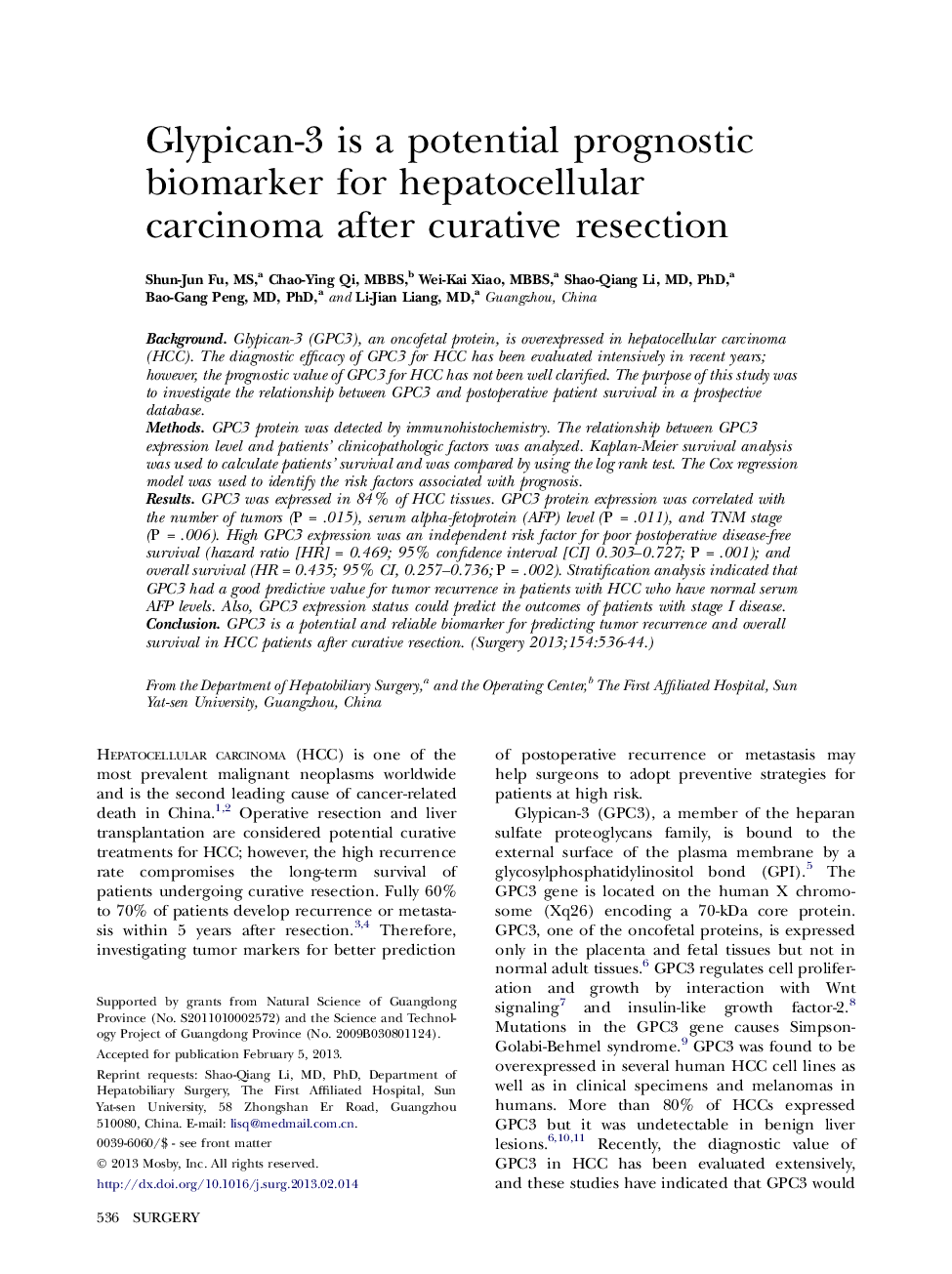| Article ID | Journal | Published Year | Pages | File Type |
|---|---|---|---|---|
| 6255223 | Surgery | 2013 | 9 Pages |
BackgroundGlypican-3 (GPC3), an oncofetal protein, is overexpressed in hepatocellular carcinoma (HCC). The diagnostic efficacy of GPC3 for HCC has been evaluated intensively in recent years; however, the prognostic value of GPC3 for HCC has not been well clarified. The purpose of this study was to investigate the relationship between GPC3 and postoperative patient survival in a prospective database.MethodsGPC3 protein was detected by immunohistochemistry. The relationship between GPC3 expression level and patients' clinicopathologic factors was analyzed. Kaplan-Meier survival analysis was used to calculate patients' survival and was compared by using the log rank test. The Cox regression model was used to identify the risk factors associated with prognosis.ResultsGPC3 was expressed in 84% of HCC tissues. GPC3 protein expression was correlated with the number of tumors (P = .015), serum alpha-fetoprotein (AFP) level (P = .011), and TNM stage (P = .006). High GPC3 expression was an independent risk factor for poor postoperative disease-free survival (hazard ratio [HR] = 0.469; 95% confidence interval [CI] 0.303-0.727; P = .001); and overall survival (HR = 0.435; 95% CI, 0.257-0.736; P = .002). Stratification analysis indicated that GPC3 had a good predictive value for tumor recurrence in patients with HCC who have normal serum AFP levels. Also, GPC3 expression status could predict the outcomes of patients with stage I disease.ConclusionGPC3 is a potential and reliable biomarker for predicting tumor recurrence and overall survival in HCC patients after curative resection.
